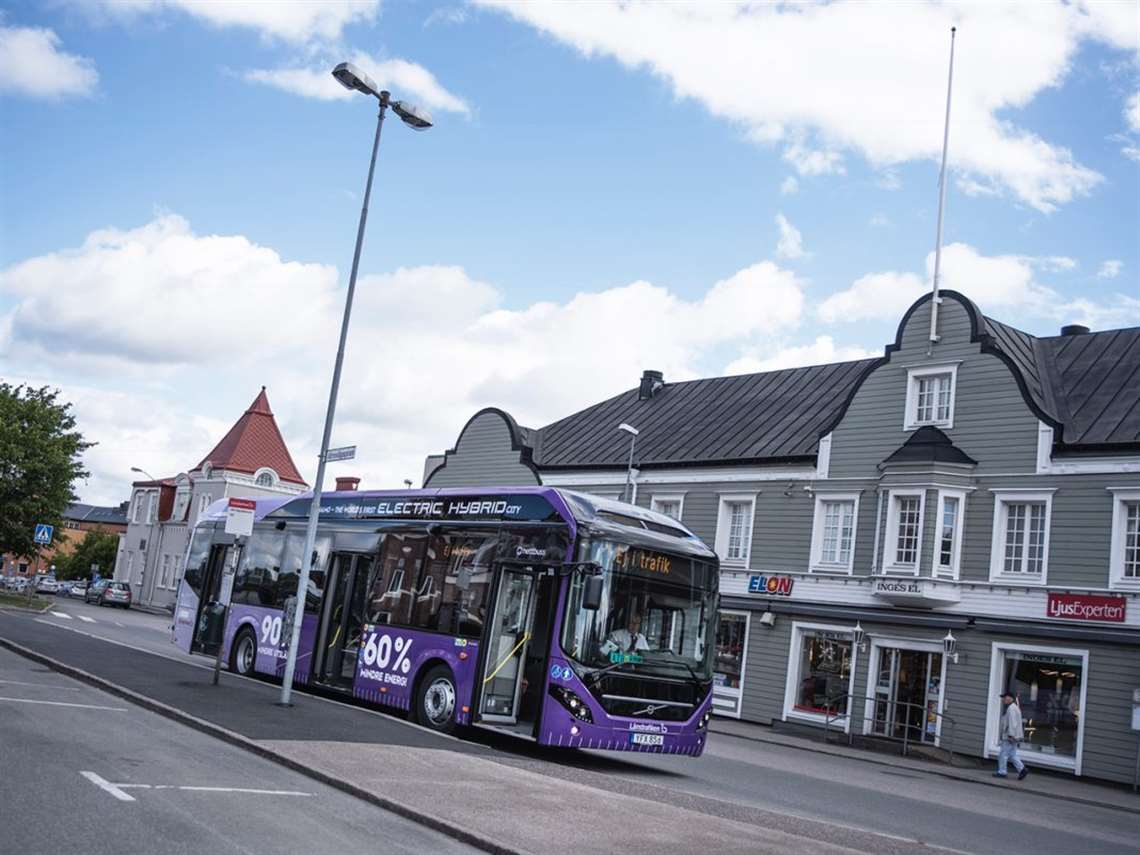Volvo Electric Hybrids For German Transit
11 September 2017

First order as Göttingen looks to all-electric buses
Volvo Buses said it has received an order for three electric hybrid buses from the German city of Göttingen in Lower Saxony. The new buses – Volvo Electric Hybrids –are expected to be operational in spring 2018. The purchaser is the public transport Göttinger Verkehrsbetriebe GmbH (GÖVB).
The Volvo 7900 Electric Hybrid buses will be propelled by electricity for about 70% of the route. The buses are equipped with an electric motor developing 150 kW, a lithium-ion-iron-phosphate battery and a Euro 6 Volvo D5K240 177 kW/240 hp diesel engine.

Göttingen’s drive for electrified bus operations is part of the city’s goal to implement green public transport over the next few years. As such, GÖVB has decided to convert almost the entire public bus fleet in steps, to electric buses. At present there are 19 bus routes in the city, several of which pass through the medieval city centre. It is planned to use the 12 m Volvo electric hybrids on two of those routes.
The Volvo Electric Hybrid permits around seven kilometres of operation between charges, corresponding to about 70 per cent of the distance of an average European route (about 90 percent of all city bus routes in Europa have a maximum length of about 10 km), Volvo Buses said.
More on Volvo electric buses
Recharging of the bus batteries takes three to four minutes at an end station the two routes share in the Gustav-Bielefeld-Strasse. In addition, the batteries are trickle-charged every night in the GÖVB bus depot. The diesel engine is included in the hybrid powertrain which offers extended range in line operation and greater flexibility.
In addition to the three Volvo Electric Hybrid buses, the order includes Volvo’s system for battery monitoring. The charging station will be supplied by ABB. The charging equipment is based on the OppCharge open interface. The intermediate re-charging is done with 150 kW, but the charging station will be designed to provide 300 kW in order to be prepared for the charging of all-electric buses.
The ABB OppCharge station has a common interface between charging station and vehicles, based on the CCS standard. The station has charging powers 150, 300 and 450 kW. A pantograph is attached to the pylon makes it possible to use a cost-effective solution that adds little weight to the bus roof. There is conductive charging using current collectors, with communication between the bus and charging station via Wi-Fi.
STAY CONNECTED




Receive the information you need when you need it through our world-leading magazines, newsletters and daily briefings.
POWER SOURCING GUIDE
The trusted reference and buyer’s guide for 83 years
The original “desktop search engine,” guiding nearly 10,000 users in more than 90 countries it is the primary reference for specifications and details on all the components that go into engine systems.
Visit Now
CONNECT WITH THE TEAM









